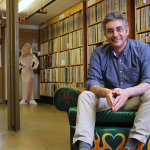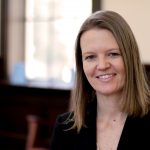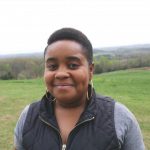We have a podcast!
We are thrilled to launch our podcast Southern Futures to tell stories of the diverse and changing South hosted by our own Melody Hunter-Pillion.
We are launched our first two episodes with Tyree Daye, Dr. Blair L.M. Kelley and Dr. Malinda Maynor Lowery.
Visit our podcast page here.

Tyree Daye, a poet from Youngsville, N.C., talks of a deeper home and a poetic connection to the South felt by artists and non-artists alike. He also explains how artists try to create the empathy needed to consider someone else’s lived experience.
Listen Episode 1 here
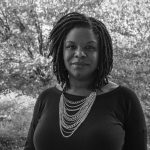
Dr. Blair L.M. Kelley, North Carolina State University professor of history and Assistant Dean for Interdisciplinary Studies and International Programs for the College of Humanities and Social Sciences, and Dr. Malinda Maynor Lowery, Director of the Center for the Study of the American South, talk about social movements and the tough conversations we must have about our past in order to achieve a shared future.
Listen to Episode 2 here.
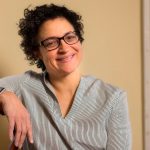
Malinda Maynor Lowery is a Professor of History at UNC-Chapel Hill and Director of the Center for the Study of the American South. She is a member of the Lumbee Tribe of North Carolina. Her second book, The Lumbee Indians: An American Struggle, was published by UNC Press in September 2018. Her first book, Lumbee Indians in the Jim Crow South: Race, Identity, and the Making of a Nation (UNC Press, 2010), won several awards, including Best First Book of 2010 in Native American and Indigenous Studies and the Labriola American Indian Center National Book Prize from Arizona State University
Steve Weiss is the Curator of the Southern Folklife Collection at the Wilson Special Collections Library at UNC Chapel Hill, one of the nation’s foremost archives of Southern music, art, and culture. He has produced several reissues with YepRoc Records including Doc Watson, Live at Club 47, Tia Blake: Paris and Montreal Demos, and Dolly Parton’s first 45rpm single “Puppy Love/Girl Left Alone.” Steve’s articles have appeared in No Depression and ARSC Journal.
Courtney Rivard on “Stories, Crisis, and Survival” – From TV newscasts to social media, so much of what we know about current social movements, COVID-19 or other issues is shaped by narratives. Courtney Rivard, a professor in the Department of English and Comparative Literature and Director of the Digital Literacy Communications Lab, demonstrates how compelling stories similarly shaped our perception of the South during the Great Depression. The conversation explores the power of storytelling during times of crisis. What is the impact of storytelling on our collective memory and ability to resolve issues?
Danielle Purifoy brings us “The Real and Relevant South” – It’s hurricane season and that concerns Purifoy who looks at the ways extreme weather and other issues impact rural communities in the South. A native of Durham, who worked in Louisiana during Katrina recovery, Purifoy examines how people in varied communities cope with these challenges. With a Ph.D. in environmental politics and a license to practice law, Purifoy’s research traces the roots of contemporary environmental conditions in the U.S. South. An Assistant Professor of Geography, Purifoy is also an editor at Scalawag, a magazine devoted to Southern politics and culture. How does nature’s caprice deal an unequal hand to poor communities in the South? Listen to Episode 6 here.
Mark Little, Ph.D., featured in “History and Culture is Everything”- Dr. Little shares plans for fighting economic disparity in North Carolina’s poorest counties while on a personal level creating strong historical and ancestral foundations for his children. Co-founder of the Black Communities Conference, his work facilitates and fosters community-engaged research partnerships, between universities and communities, in support of Black community life. Little is Executive Director of CREATE, Co-Founder of SmartUp and former Executive Director of the Kenan Institute. He launched NCGrowth, a program that helps North Carolina’s rural and under-served communities grow and retain business and researches solutions to energy, environment, and climate related problems. This music composer is also a native North Carolinian with a Ph.D. in geology and geophysics. How does history and culture influence economic disparity and the ways we see and don’t see that disparity?
Southern Futures is a podcast powered by the Southern Futures initiative, a new collaboration between the College of Arts and Sciences, UNC Libraries, the Center for the Study of the American South and other units of the University of North Carolina at Chapel Hill.


